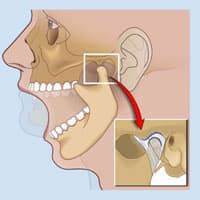-
-

CAVITIES
Can You Heal A Cavity At Home?You feel a sharp pain when you bite down or try to eat. You think it's a cavity, but you're not 100 percent sure...

BAD BREATH
How To Cure Bad BreathMore commonly known as bad breath, halitosis is an embarrassing hygiene issue that nobody wants, but some of us get every now and then...
-
Science & Innovation
- Colgate® | Toothpaste, Toothbrushes & Oral Care Resources
- Oral Health
- What Is Temporomandibular Joint Disorder (TMJ)?


What is TMJ?
TMJ, or temporomandibular joint disorder, means that the hinge connecting the upper and lower jaw isn't working properly. This hinge is one of the most complex joints in the body, responsible for moving the lower jaw forward, backward and side-to-side. Any problem that prevents this complex system of muscles, ligaments, discs and bones from working as it should is called TMJ. Often, TMJ feels like your jaw is popping or clicking or even "getting stuck" for a moment. The exact cause of this misalignment is often impossible to determine.
What are the Symptoms of TMJ?
TMJ disorders have many signs and symptoms. It's often hard to know for sure if you have TMJ, because one or all of these symptoms can also be present for other problems. Your dentist can help make a proper diagnosis by taking a complete medical and dental history, conducting a clinical examination and taking appropriate X-rays.
Some of the most common TMJ symptoms include:
- Headaches (often mimicking migraines), earaches, and pain and pressure behind the eyes
- A clicking or popping sound when you open or close your mouth
- Pain brought on by yawning, opening the mouth widely or chewing
- Jaws that "get stuck," lock or go out
- Tenderness of the jaw muscles
- A sudden change in the way the upper and lower teeth fit together
How is TMJ Treated?
While there is no single cure for TMJ, there are different treatments you can follow that may reduce your symptoms dramatically. Your dentist may recommend one or more of the following:
- Trying to eliminate muscle spasm and pain by applying moist heat or taking medication such as muscle-relaxants, aspirin or other over-the-counter pain-relievers, or anti-inflammatory drugs
- Reducing the harmful effects of clenching and grinding by wearing an appliance, sometimes called a bite plate or splint. Custom-made to fit your mouth, the appliance slips over the upper teeth and keeps them from grinding against the lower teeth
- Learning relaxation techniques to help control muscle tension in the jaw. Your dentist may suggest you seek training or counseling to help eliminate stress
- When the jaw joints are affected and other treatments have been unsuccessful, jaw joint surgery may be recommended
 |
| TMJ occurs when the complex joint that "hinges" your upper and lower jaw does not work well. |
Related Articles


While blenders and ice crushers are perfect for crunching ice cubes, teeth are not. Find the perfect alternative to ice crunching here!

Migraines can come with a variety of symptoms. A migraine can sometimes be triggered by tooth pain caused by jaw disorders like TMJ, teeth grinding, and toothaches.
Related Products

Helping dental professionals
More professionals across the world trust Colgate. Find resources, products, and information to give your patients a healthier future








